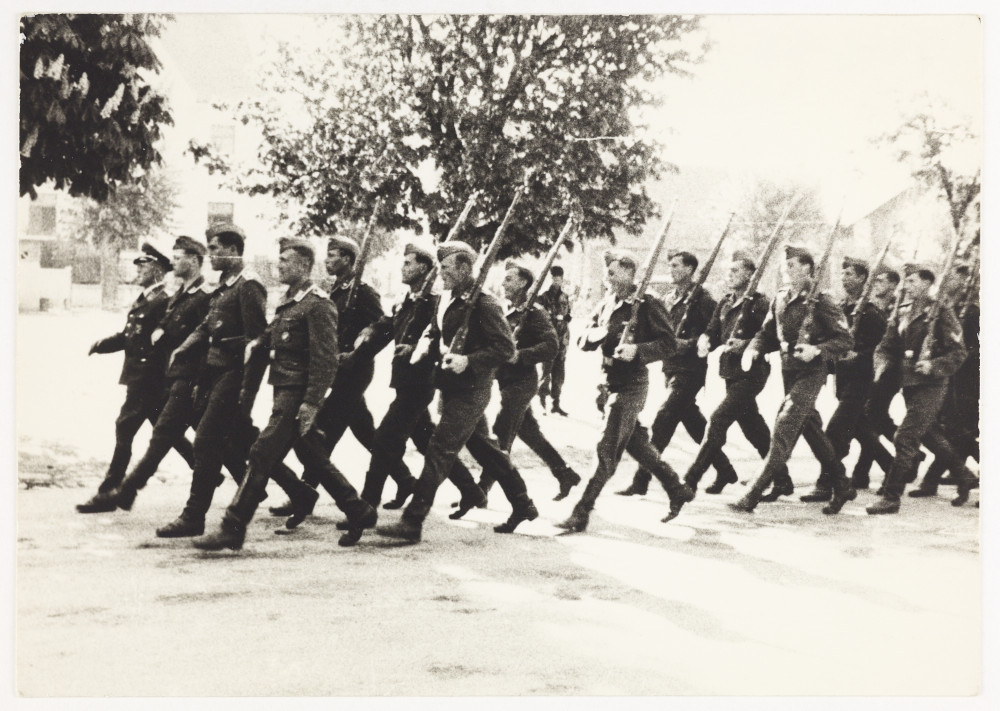During the Occupation, German troops established a repressive, preventive and violent regime in the occupied territories, reinforced by the presence of concentration camps. From June 1940 to June 1944 this was limited at first, and then focused essentially on Jews, Communists and other groups of resisters. The general population was almost never involved in roundups or killings, contrary to what was happening on the Eastern front. The year 1943 was a turning point. The actions of the Resistance were becoming more widespread and so the Germans increased their repressive tactics. In February 1944, the Sperrle decree stipulated that for every German soldier who was attacked, occupying troops should respond with the greatest violence. It was even decreed that “Leaders who were overly lenient would be sanctioned.”
During the summer of 1944, German troops were under attack from the Resistance from every angle. They therefore felt within their rights to retaliate with hostage-taking, deportation and murder. Some units, like the sadly famous 2. SS-Panzer Division « Das Reich » carried out the biggest mass shootings on French soil, particularly at Oradour-sur-Glane and Tulle. The Nazi repression was also felt by the maquis (guerrilla Resistance groups) in the Vercors, Isère region, the Glières in Haute-Savoie and Saint-Marvel in the Morbihan. Very often, the occupiers were helped with their dirty work by collaborators from the militia or even the Vichy government’s Groupes Mobiles de Réserve (GMR).
In Brittany and in Normandy the occupiers only had a small amount of time to carry out such killings, since their priority was the front line. Whenever possible, they tried to carry them out far from the front, and therefore far from the Allies, in order to hide their actions. Still, some mass killings did occur in Brittany, in the same vein as the massacre carried out by the 2. Fallschirmjäger-Division led by General Ramcke, which murdered more than 200 people in Brittany as it marched towards Brest. Certain units from Eastern Europe also terrorised the population and slaughtered people, for example in Saint-Pol-de-Léon. The Penguérec massacre was completely in keeping with their repressive reasoning. When German soldiers were attacked, the automatic response was to take hostages and then shoot them.
Translation: Tilly O'Neill


